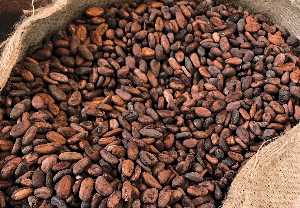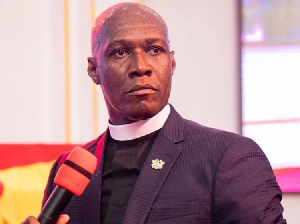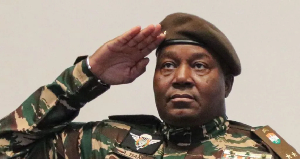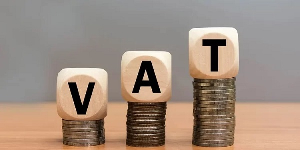Accra, April 10, GNA- The business community has called on presidential candidates for the 2008 Election to run clean electioneering campaigns to ensure that the country remained stable and safe for businesses to thrive during and after the poll. Mr George Kweku Ofori, acting President of Ghana Union of Traders Association (GUTA), made the call at a forum organized by the Private Enterprises Foundation (PEF) in Accra, to enable members of the business community to interact with the presidential candidates and discuss with them issues concerning business and industry.
The event was attended by representatives of business and consumer associations as well as four presidential candidates for the 2008 elections. They were Dr. Paa Kwesi Ndoum, Convention People's Party (CPP), Dr Edward Nasigre Mahama, People's National Convention (PNC), Mr Emmanuel Ansah Antwi, Democratic Freedom Party (DFP) and Mr Kwesi Amoafo Yeboah, an independent candidate.
Nana Addo Dankwa Akufo-Addo, flag bearer of the ruling New Patriotic Party (NPP), was represented by his campaign manager, Mr Jake Otanka Obetsebi-Lamptey but there was no representation from the National Democratic Congress (NDC). Mr Ofori noted that politicians who set their countries ablaze with their dirty political campaigns were usually the first to flee abroad to engage in consultancy jobs leaving locally-based businesses people to suffer the poor political and business climate created. He said: "We in the business community are not enthused about some of the comments flying around from politicians about the chaos that this country will plunge into if they do not win the elections. This kind of campaign threatens to lead to an unstable political atmosphere which is not good for business to thrive. "We, therefore, plead with our politicians, especially the presidential candidates, to exercise restraint in their campaign to ensure that the country will remain stable for our businesses to thrive even after the elections."
Mr Ofori noted that most politicians had their visas ready to flee the country in the event of instability, but locally-based businesses were bound to run at a loss if this happened. He noted that over the years, politicians had failed to deliver on their campaign promises to make the private sector the engine of growth. Mr Ofori said with regard to the retail business, for instance, the system had allowed the influx of foreigners into the retail market even though the legal regime did not allow that. "There is the need for regulatory measures to ensure that we control our economy to the extent that Ghanaians will be in charge of the local trade environment to give us some competitive advantage," he said.
Dr Kwesi Prah, President of the Ghana Institution of Surveyors (GhIS), also reiterated the need for clean campaign saying that some politicians who pretended to preach peace, but their own comments gave them away as persons ready to benefit from violence, should be mindful of the instability the country would plunge into if they continued with such dirty campaign. Dr Osei Boeh-Ocansey, Director-General of PEF, expressed concerned about some businesses practices in the informal sector and said they were in violation of the laws of the country and yet the state looked on unconcerned. He said PEF was not happy that some businesses in the informal sector were lawless in their very existence and operations and yet they were tolerated by the state and embraced by the public. He called on the presidential candidates to assure legitimate businesses that would deal with illegal issues in the informal sector business to ensure sanity within the business community.
Mr Boeh-Ocansey urged the presidential candidates to support investors involved in the regularization of their operations with the state to ensure sanity in the system. A representative of the Ghana Chamber of Mines (GCM) noted that big time illegal small-scale mining was on-going within the concessions of the Obuasi and Prestea mines, making investors nervous about the security of their investment.
General News of Thursday, 10 April 2008
Source: GNA












